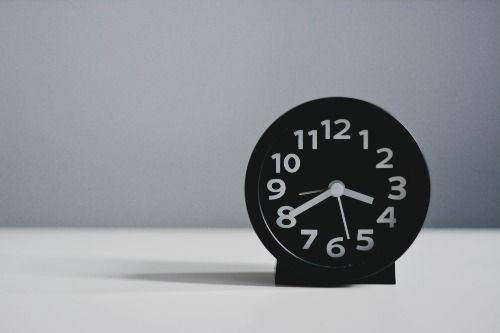How I Beat Insomnia

Hello and welcome to this weeks newsletter. This week I am talking about my past struggles with Insomnia and how I managed to overcome this.
What is Insomnia?
Insomnia can be defined as “sleep continuity disturbance associated with daytime complaints related to sleepiness, fatigue, somatic symptoms, mood disturbance, compromised cognitive or occupational function, concerns about sleep, or dissatisfaction with sleep (Perlis et al. 2022)”.
In real terms, your alarm is set for 6am, you know ideally your intention is to be asleep by 11pm at the latest, if not before. But you are laying there, and your mind is going into overdrive with all different thoughts, thinking about the day ahead, any worries or stresses and even completely random things.
Before you know it, you’ve not dropped off to sleep and you check the time to see it’s just gone midnight. You know you are going to have less than 6 hours sleep but if you can just drop off to sleep now you know you will get through the day ok. However, you lay there and you check the time…
1am, 2am, 3am… the fact you are still awake and couldn’t drop off creates more stress in your mind because you start thinking how you are going to get through the next day.
If you are lucky, you might have dropped off to get a couple of hours before that alarm goes just as you are in the middle of a deep sleep.
You get to work but can feel your cognitive abilities struggling with that hazy brain fog. You get through the morning but not performing at your best and as the afternoon comes you can barely keep your eyes open, reaching for caffeine and junk snacks just to get to the end of the day.
You get home and trying to stay awake to a normal bedtime hour feels impossible so you either mess your body clock up further by falling asleep and then awakening through the early hours again, or you manage an earlier night only to be faced with the insomnia the next night.
This was me for a period of time around 2015, I lost count of the number of nights I spent awake unable to sleep. I felt completely fatigued, tired and frustrated because I knew I wasn’t performing to my best. It was affecting my work and you can feel like you are in a cycle that is hard to break out of.
So how did I overcome Insomnia?
After starting work with a Holistic Health Coach/Naturopath and having a full health and lifestyle review we identified:
- I wasn’t creating energy balance with my meals
- I was still consuming caffeine during the afternoon/evening. (I hadn’t considered the caffeine in the green tea I was consuming)
- I didn’t have a bedtime routine
- Too much electronic stimulation (blue light) late at night
So what did I do...
- Made alterations to my main meals for better energy balance
- Stopped Caffeinated drinks after lunch. I switched too herbal teas like Peppermint, Nettle etc. An hour before bed I would have a herbal night tea.
- Made sure electronics were off at 9pm.
- Spent between 9-10pm doing one of or a combination of the following which I sometimes alternated:
An adult colouring book
I was open to trying anything and it is incredible how relaxing this method was. My mind emptied and I could feel myself get a deeper connection to self, able to let go of stressors and focus positively on what I wanted to achieve.

Stretching
Stretching before bed is incredibly relaxing for the body and gave me an opportunity to focus on really stretching out any tight muscles and just be present with myself.

Journaling
Sometimes I would just write a couple of pages and let my thoughts flow. This was another way of not taking stressors to bed and being able to empty my mind.

Breathing exercises
I would use a selection of different Qigong style breathing exercises timed with gentle movements. This is a really good way of activating your parasympathetic nervous system or rest and digest to facilitate a good sleep.

By creating a routine of electronics off at 9pm and spending up to an hour on one of the above activities between 9-10pm, combined with some simple lifestyle changes I was able to reset my body clock and circadian rhythm.
On days off I would initially allow myself to lay in until 7.30am as I needed to maximise restoration but within a week I was finding myself waking up at 6am fairly easily and able to fall asleep between 10-10.30pm.
For me, the two biggest factors were creating a routine and avoiding caffeine in the afternoon/evening. I went from that stressed and wired state to feeling more refreshed and energised.
How will you improve your sleep?
Obviously, everyone has different lifestyle and work demands. The above methods are what worked for me.
Think about what choices and habits you have that may be detrimental to you getting a good sleep and what small habits you could adopt to improve your sleep. Of course, there are different techniques and approaches that will be relative or appropriate for each individual.
- Try and create a routine as much as possible.
- Offset the effects of some work or life demands by making small changes such as avoiding caffeine in the afternoon/evening or spending some time immediately before bed doing an activity that will promote relaxation.
- Prepare for the next day before bed e.g. clothes/uniform, food, work bag packed etc.
Thank you for reading. If you need any coaching support and help identifying what factors could be affecting your sleep and how you can improve this, please email: lee@leeransomcoaching.com